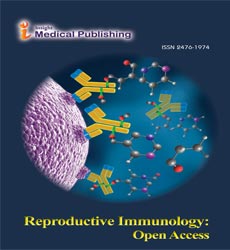Abstract
Accurate and reliable fetal gender determination using Primer Design Y-chromosome detection kit
Aim: To validate a protocol for noninvasive fetal sex determination in maternal plasma and demonstrate its applicability to clinical practice. Introduction: The human Y chromosome harbors qualities that are liable for testis improvement and furthermore for commencement and support of spermatogenesis in adulthood. The long arm of the Y chromosome (Yq) contains numerous ampliconic and palindromic successions making it inclined to self-recombination during spermatogenesis and thus helpless to intra-chromosomal erasures. Such erasures lead to duplicate number variety in qualities of the Y chromosome bringing about male fruitlessness. Three basic Yq erasures that repeat in fruitless guys are named as AZF (Azoospermia Factor) microdeletions viz. AZFa, AZFb and AZFc. As evaluated from information of almost 40,000 Y chromosomes, the worldwide pervasiveness of Yq microdeletions is 7.5% in fruitless guys; anyway the European barren men are less helpless to Yq microdeletions, the most noteworthy commonness is in Americans and East Asian barren men. Also, fractional erasures of the AZFc locus have been related with barrenness however
the impact is by all accounts ethnicity subordinate. Investigation of > 17,000 Y chromosomes from rich and barren men has uncovered a relationship of gr/gr erasure with male fruitlessness in Caucasians and Mongolian men, while the b2/b3 cancellation is related with male barrenness in African and Dravidian
men. Clinically, the screening for Yq microdeletions would help the clinician in deciding the reason for male fruitlessness and choose a levelheaded administration procedure for the patient. As these erasures are transmitted to 100% of male posterity brought into the world through helped proliferation, testing of Yq cancellations will permit the couples to settle on an educated decision with respect to the propagation of male barrenness in people in the future With the developing information on relationship of Yq erasures with testicular malignancies and neuropsychiatric conditions long haul follow-up information is desperately required for fruitless men
holding Yq cancellations. Whenever found thus, the data will change the current the point of view of androgenetics from fruitlessness and might have expansive ramifications in men wellbeing. Method: Peripheral blood from 318 pregnant women was collected from 7 to 12 weeks of gestation. Real-time PCR was performed for multicopy DYS14 marker sequence located within the TSPY gene by the TaqMan probe assay. An exogenous spiked-in amplification/ detection system was also used as a positive control for the extraction process. A diagnostic algorithm was designed using a combination of these two markers. Fetal gender determined by noninvasive prenatal diagnosis (NIPD) was compared with ultrasound results. The Fisher exact test (two-sided) was used to determine sensitivity and specificity with 95% confidence intervals (CIs). Results: A single false-positive result was obtained in all 318 pregnancies. The overall sensitivity and specificity were 100% (95% CI 97.7–100%) and 99.3% (95%CI 96.4–99.9%), respectively. Pregnancy outcome was obtained in all cases, including 154 male-bearing and 164 female-bearing pregnancies.
Conclusions: Primer Design Y-chromosome detection kit for fetal sex determination in plasma of early weeks pregnants is highly accurate and clinically applicable if robust reporting criteria are applied. Key Words: fetal sex determination; Y-chromosome detection kit; Real-Time PCR Reproductive Biology 2019: Accurate and reliable fetal gender determination using Primer Design Y-chromosome detection kit
Zara Wasim Haidi
University of Tehran, Iran
2020
Vol. 4, Iss. 2
Reproductive Immunology: Open Acces
Extended Abstract ISSN 2476-1974
Author(s): Zara Wasim Haidi
Abstract | PDF
Share this

Google scholar citation report
Citations : 237
Reproductive Immunology: Open Access received 237 citations as per google scholar report
Abstracted/Indexed in
- Google Scholar
- Sherpa Romeo
- China National Knowledge Infrastructure (CNKI)
- Secret Search Engine Labs
Open Access Journals
- Aquaculture & Veterinary Science
- Chemistry & Chemical Sciences
- Clinical Sciences
- Engineering
- General Science
- Genetics & Molecular Biology
- Health Care & Nursing
- Immunology & Microbiology
- Materials Science
- Mathematics & Physics
- Medical Sciences
- Neurology & Psychiatry
- Oncology & Cancer Science
- Pharmaceutical Sciences

